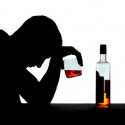New Path For Cocaine Addiction Research
Cocaine is one of the oldest drugs known to humans, and its abuse has become widespread since the end of the 19th century. At the same time, we know rather little about its effects on the human brain or the mechanisms that lead to cocaine addiction. The latest article by Dr. Marco Leyton, of the Montreal Neurological Institute (MNI), McGill University and the McGill University Health Centre, which was published in the journal Biological Psychiatry on May 15, 2009, not only demonstrates a link between cocaine and the reward circuits in the brain but also associates the susceptibility to addiction with these mechanisms.
The results of this study show that sniffing cocaine triggers high levels of dopamine secretion in a central region of the brain called the striatum. Dopamine is known to play a critical role in the brain’s response to reward as well as in its response to addictive drugs.
This study was carried out in ten non-addicted users of cocaine, all of whom sniffed cocaine on one test day and placebo powder on another. Participants underwent blood tests before and after taking the drug, and dopamine release in the brain was measured using PET scans.
“The ability of cocaine to activate dopamine release varies markedly from person to person. Our study suggests that this is related to how much of the drug the person consumed in the past,” explained Dr. Leyton. The more cocaine someone has used in his or her lifetime, the more the brain will secrete dopamine during subsequent cocaine use. “It’s possible therefore that the intensity of the reward-circuit response is related to increased susceptibility to addiction,” stated Dr. Leyton.
Although the relationship between the intensity of dopamine secretion and the frequency of drug use has been demonstrated, researchers still do not fully understand its mechanism of action. Is it the repeated stimulation of the reward circuit that leads to addiction, or is it an inherent sensitivity to addiction that leads to the increased secretion of dopamine? This question is not easy to answer, especially since other factors come into play, such as other aspects of the subject’s personal history.
Whatever the answer, the relationship between dopamine and cocaine means that this hormone could be a potential target for treatment against addiction. More research is required before treatments are available, but this study opens a new door in this direction.
source: MediLexicon

